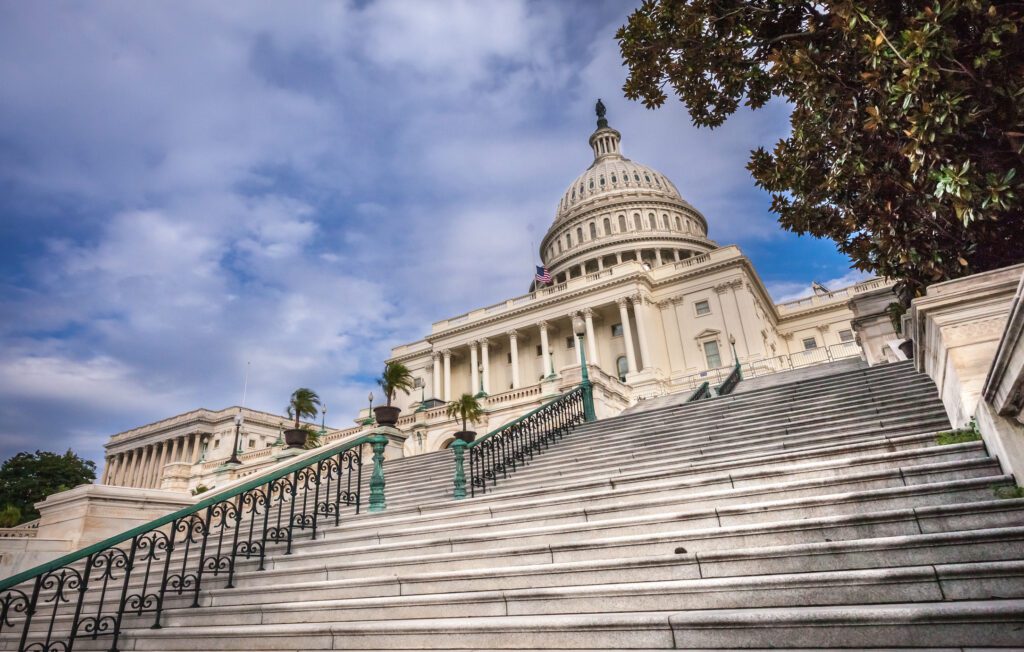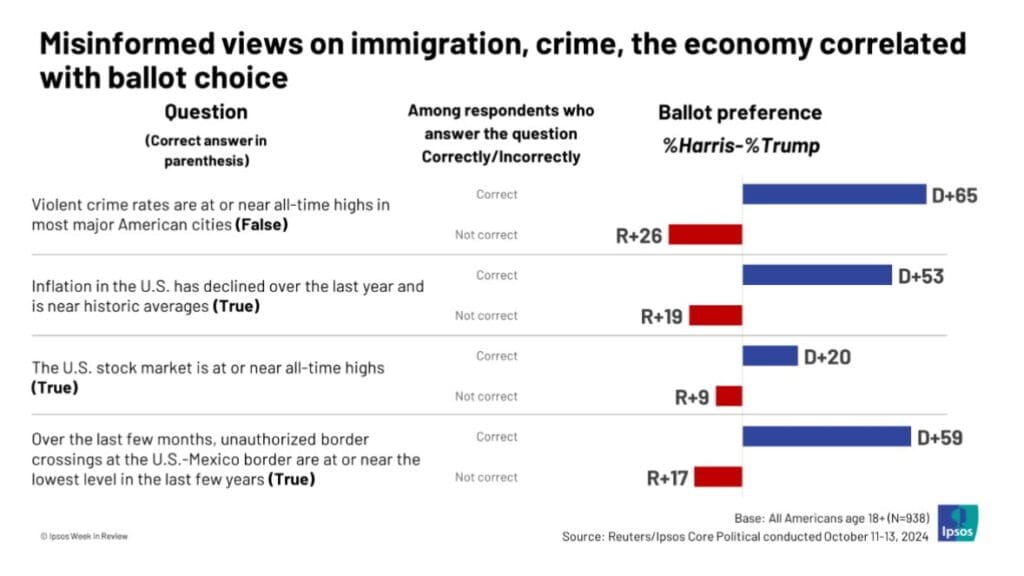How Influencers Helped Republicans Win and What Democrats Can Do About It

As Taylor Lorenz and others have pointed out, after Donald Trump was declared the winner of the 2024 election, Dana White, the Ultimate Fighting Championship CEO, took the stage and thanked the content creators who helped win the election. “I want to thank the Nelk Boys, Adin Ross, Theo Von, Bussin’ With The Boys and last but not least, the mighty and powerful Joe Rogan.” This is a sign of how the campaign information environment has shifted.
One more example: Axios noted that “[Elon] Musk used the platform to help shape public opinion during the election, artificially amplifying his political messages and giving him influence with Donald Trump that money alone wouldn’t have bought.”
There’s no question that the results were tough for many content creators and grassroots activists. As leaders of an influencer network, which has more than 800 trusted creator accounts generating more than 150 million views and 25 million engagements each day, we were proud to support the Harris/Walz campaign and countless federal campaigns this cycle, and we are not going to play Monday morning quarterback on the issues.
But what we can say is that whatever issues Democrats decide to prioritize moving forward, they must change how they communicate to voters. Too often, progressive leaders in the past believed that campaigns exist in an idealized West Wing type space where candidates engaged in fact-based policy exchanges to win over voters.
Every part of that assumption is wrong.
The legacy media audience is continuing to crater. Content creators such as Brian Tyler Cohen for example, have more viewers on individual videos posted on his YouTube channel than CNN averages in a week. Gallup reported in October only 31 percent of Americans had a ‘great deal of trust’ in the media. Trust is also highly polarized with only 12 percent of Republicans and 27 percent of independents having a great deal of trust. This is why, incidentally, the Harris/Walz campaign prioritized local media over national media interviews. (Local media often rate higher in these types of surveys).
Declining viewership and trust make the mainstream media an increasingly difficult vehicle for “earned” communication to voters.
As Tyler Cohen has pointed out, “Republicans have a rightwing media ecosystem that repeats GOP talking points over and over, ad nauseam, until they’re seared into your cerebral cortexes. Not only is there no equivalent on the left, but plenty of D politicians still refuse to bolster independent progressive creators. They still give all juicy interviews to MSM, still break news on MSM, still pretend MSM is on our ‘team.’ They’re not, and in fact bend over backwards not to be viewed as the liberal media. Dem politicians could benefit from validating the very progressive outlets that are actually doing the work to support them.”
Some trendlines: Pew reported in October that 4 in 10 young adults get their news from TikTok, up from 9 percent in 2020. Pew also reported in October that “Adults under 30 are nearly as likely to trust information from social media as from national news outlets.” Republicans are equally likely to trust social media for news as legacy media outlets.
What this means in practice is that persuadable voters are being communicated with more frequently by conservatives, and are hearing the conservative worldview more often. A pre-election survey showed this has a direct impact on how voters make their choices at the ballot box:

In the Obama Era, Democrats made a shift in many battleground states to organizing year round, rather than just turning on GOTV during the last few months of the campaign. One lesson of this cycle is that Democrats must similarly engage with voters in the digital world year round.
Going forward we need to scale the infrastructure around effective online voices and to use tools that are built to connect that reach with the goals of a campaign.
Stuart Perelmuter is the founder and Josh Cook is the president of Good Influence, an influencer network that works with campaigns and causes on the left.
